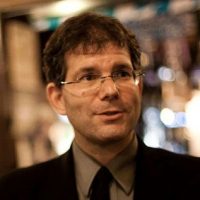Andrew I. Port is an associate professor of history at Wayne State University in Detroit. He previously taught as a Lecturer at Harvard and at Yale, and also worked as a Project Coordinator at the Office of Human Rights in Nuremberg, Germany. He received a Ph.D. in modern European history from Harvard, a B.A. in history from Yale, and a degree in political science from the Institut d’Etudes Politiques in Paris.
Port is currently the Editor of the journal Central European History and previously served as the Review Editor of the German Studies Review. He is the recipient of the 2013 DAAD Prize in German and European Studies.
Port’s research focuses on modern Germany and Europe, communism and state socialism, social protest, popular resistance under autocratic regimes, and comparative genocide. His first book, Conflict and Stability in the German Democratic Republic (Cambridge UP, 2007; pb 2008), appeared in German translation as Die Rätselhafte Stabilität der DDR (Ch. Links, 2010; Bundeszentrale für politische Bildung, 2011) and received a great deal of positive media attention in Germany. The author of numerous articles, he is also the co-editor with Mary Fulbrook (University College London) of Becoming East German: Socialist Structures and Sensibilities after Hitler (Berghahn, 2013).
His current project, “What Germans Talk About When They Talk About Genocide,” looks at German reactions to genocide in other parts of the world since 1945, with a special focus on Cambodia, Rwanda, and the Balkans. Andrew Port grew up in Brooklyn, New York, and now lives in Ann Arbor, Michigan.




